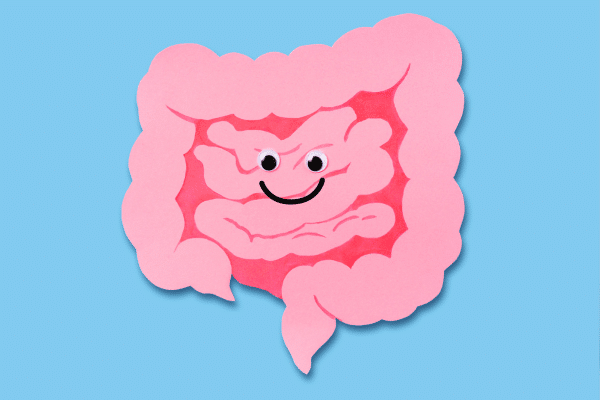A plant-based diet, characterized by a focus on foods derived from plants, including vegetables, grains, nuts, seeds, legumes, and fruits, is gaining traction globally. This dietary approach is not only recognized for its potential health benefits but also for its positive environmental impact. The shift towards plant-based eating is driven by a growing body of scientific research highlighting its role in improving overall health, managing chronic diseases, and contributing to sustainability. This article delves into the multifaceted benefits of adopting a plant-based diet, exploring its profound effects on heart health, mood, energy levels, and more.
Contents
Promotes Good Heart Health

The link between a plant-based diet and improved heart health is strongly supported by scientific evidence. Such a diet typically includes lower levels of saturated fats and cholesterol, commonly found in animal products, thus reducing the risk of heart disease. Moreover, the abundance of fiber, essential nutrients, and antioxidants in plant-based foods aids in regulating blood pressure and improving cholesterol levels, two critical factors in heart health maintenance. Additionally, plant-based diets are rich in heart-healthy nutrients like potassium and magnesium, further supporting cardiovascular well-being.
Incorporating a variety of plant-based foods can lead to a significant reduction in the risk of developing heart-related conditions. Studies have consistently shown that individuals following a plant-based diet experience a lower incidence of heart attacks and strokes. This is partly due to the anti-inflammatory and antioxidative properties of plant-based foods, which play a crucial role in maintaining healthy blood vessels and preventing plaque buildup. Embracing a plant-based diet not only helps in managing existing heart conditions but also serves as a preventive measure against future cardiovascular issues.
Boosts Mood And Energy Levels

Adopting a plant-based diet can have a remarkable impact on mental well-being and energy levels. This diet is rich in essential nutrients such as vitamins, minerals, and antioxidants, which are crucial for brain health and emotional balance. The abundance of complex carbohydrates in plants provides a steady supply of energy, preventing the blood sugar spikes and crashes often associated with high-sugar and refined foods. This steady energy supply is instrumental in maintaining consistent mood and cognitive function throughout the day.
Furthermore, a plant-based diet is known for its high levels of nutrients that are essential for brain health, such as Omega-3 fatty acids, found in flaxseeds and walnuts, and B-vitamins, abundant in whole grains and leafy greens. These nutrients play a significant role in reducing inflammation and oxidative stress in the brain, which are linked to mood disorders. Studies have indicated that individuals following a plant-based diet often report feeling more energetic and experiencing better mental clarity, alongside a noticeable improvement in mood and a reduction in symptoms of depression and anxiety.
Reduces Your Carbon Footprint

The environmental benefits of a plant-based diet are significant and multifaceted. By reducing reliance on animal agriculture, a major contributor to greenhouse gas emissions, this diet helps combat climate change. Animal farming is not only a leading source of methane and carbon dioxide, but it also requires extensive land use and water resources. In contrast, plant cultivation generally requires less water and land, resulting in a smaller environmental footprint. The shift to plant-based eating is thus a powerful tool in the fight against global warming, offering a sustainable path for food production.
Moreover, a plant-based diet contributes to preserving biodiversity and reducing deforestation. The large-scale farming of animals often leads to habitat destruction and species loss. By opting for plant-based foods, the demand for extensive animal agriculture diminishes, thereby protecting natural habitats and conserving wildlife. This approach to eating has the potential to reduce the strain on Earth’s resources, making it a responsible choice for those concerned about the planet’s future health.
Boosts Brain Health

A plant-based diet is not only beneficial for physical health but also plays a crucial role in maintaining cognitive function. Foods rich in antioxidants, vitamins, and minerals, which are abundant in a plant-based diet, help in protecting the brain from oxidative stress and inflammation, factors that contribute to cognitive decline. Leafy greens, berries, nuts, and seeds, for instance, are associated with a reduced risk of neurodegenerative diseases like Alzheimer’s and Parkinson’s. These foods provide essential nutrients that support brain health, including vitamin E, flavonoids, and omega-3 fatty acids.
Additionally, a diet rich in plant-based foods can enhance memory, concentration, and overall brain performance. Studies have shown that individuals who follow a diet high in fruits, vegetables, and whole grains have a lower risk of cognitive impairments and better brain function as they age. The fiber in these foods also plays a role in gut health, which is closely linked to brain health through the gut-brain axis. Thus, a plant-based diet is not only a commitment to physical health but also an investment in long-term cognitive well-being.
Reduces Arthritis Symptoms

Individuals suffering from arthritis may find relief by adopting a plant-based diet. This diet’s anti-inflammatory properties are particularly beneficial in reducing the pain and stiffness associated with arthritis. Foods like leafy greens, nuts, and whole grains are rich in antioxidants and phytochemicals that combat inflammation in the body. Moreover, the exclusion of processed and high-fat animal products, which can exacerbate inflammation, further contributes to symptom relief. Many arthritis sufferers report a noticeable reduction in joint pain and an improvement in mobility after transitioning to a plant-based diet.
Research supports the connection between a plant-based diet and reduced arthritis symptoms. Studies indicate that this diet can lower the levels of C-reactive protein, a marker of inflammation in the body, thereby alleviating the symptoms of rheumatoid arthritis and osteoarthritis. The weight loss often associated with a plant-based diet can also be beneficial, as it reduces the stress on joints, particularly in weight-bearing areas like the hips and knees. The combination of weight management and anti-inflammatory effects makes a plant-based diet a viable option for those seeking to manage arthritis symptoms naturally.
Enhances Digestive Health

The impact of a plant-based diet on digestive health is profound. High in dietary fiber, this diet is essential for maintaining healthy bowel movements and preventing constipation. Fiber acts as a bulking agent, aiding in smoother and more regular bowel movements. It also plays a critical role in feeding the beneficial bacteria in the gut, which is vital for a healthy gut microbiome. A balanced gut microbiome is linked to improved digestion, better nutrient absorption, and a stronger immune system. Moreover, plant-based diets are typically low in processed foods and high in water content, both of which are beneficial for digestive health.
A plant-based diet also has the potential to alleviate symptoms of various digestive disorders, including Irritable Bowel Syndrome (IBS) and Inflammatory Bowel Disease (IBD). The anti-inflammatory properties of fruits, vegetables, and whole grains can help reduce inflammation in the gut, providing relief from discomfort and bloating. Additionally, the diversity of plants in the diet ensures a wide range of nutrients and phytochemicals that support overall gut health. For those with digestive issues, transitioning to a plant-based diet can be a step towards improved gut health and overall well-being.
Improves Skin Health

The benefits of a plant-based diet extend to skin health as well. Rich in vitamins, minerals, and antioxidants, plant-based foods provide the nutrients necessary for maintaining healthy skin. Vitamins C and E, found in abundance in fruits and vegetables, play a crucial role in skin repair and prevention of damage from environmental factors like UV rays and pollution. Additionally, the high water content in many fruits and vegetables helps keep the skin hydrated and supple. A diet lacking in essential nutrients can lead to dull, lifeless skin, whereas a plant-rich diet contributes to a healthy, glowing complexion.
Beyond providing essential nutrients, a plant-based diet can also aid in reducing skin conditions such as acne, eczema, and psoriasis. These conditions are often exacerbated by inflammation and imbalances in the body, issues that a plant-based diet can help address. Foods like berries, leafy greens, and nuts, with their anti-inflammatory properties, can help reduce the severity of these skin conditions. Furthermore, eliminating dairy and high-fat animal products, known triggers for acne and other skin issues, can result in clearer skin. Thus, a plant-based diet not only nourishes the skin from the inside but also helps mitigate common skin problems.
The Bottom Line
Embracing a plant-based diet offers a multitude of benefits that extend beyond personal health to include environmental sustainability. From enhancing heart health and cognitive function to alleviating symptoms of chronic conditions like arthritis and digestive disorders, the advantages are wide-ranging. Additionally, the positive impact on the planet, through reduced carbon emissions and conservation of natural resources, makes it an environmentally responsible choice. Whether motivated by health, ethical, or environmental reasons, incorporating more plant-based foods into one’s diet can be a transformative step towards a healthier, more sustainable lifestyle.


